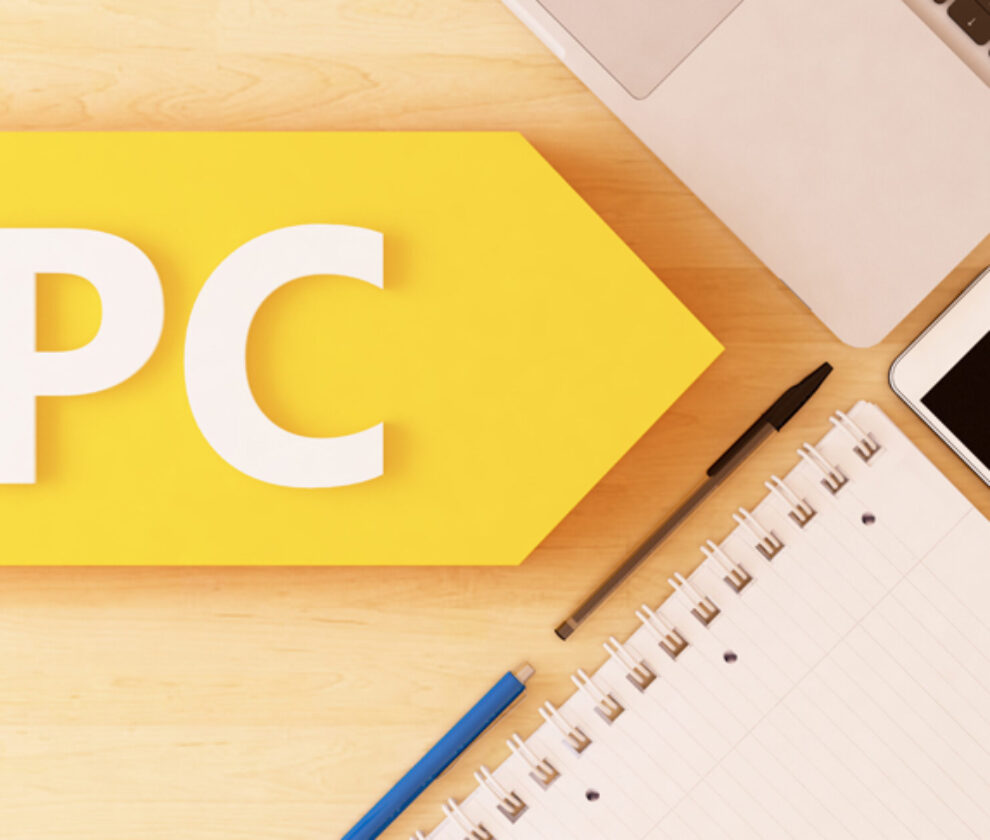The objective of every medical PPC ad remains the same — gain exposure and convert as many patients as possible for low cost-per-click (CPC) rates. When you think of medical PPC, you just think of creating ads, developing target groups, and leaving the rest to the automated AI campaign. However, this is easier said than done. Countless things can go wrong with your PPC campaign and can cost you hundreds of dollars as consequences.
Preferred as the more outcome-bearing marketing channel, pay-per-click (PPC) ads can be a powerful gateway for a medical business to draw in new patients and fortify its position in the medical field by gaining exposure. Yet, PPC is also known as the most complicated and complex marketing platform. With countless factors to consider when creating a campaign and investing hundreds of dollars, it is quite easy for it all to fall off the wagon and turn things around for you in the worst way possible.
PPC campaigns are complex and it is often advised that startup medical businesses should hire PPC service from a medical marketing agency. Nonetheless, there are still aspects that you should know as well, even if you hire a medical marketing service just so you can stay ahead of committing these mistakes and making sure that every penny invested in your medical PPC ad is earned back to you in high ROI and new leads.
What Are Some Common PPC Mistakes in Your Medical Campaign?
As mentioned above, there is a 90% chance of missing something or choosing the wrong option when creating a medical PPC ad. While these medical PPC common mistakes may vary, the five below are the ones that are the most common.
Poor Ad Navigation
Your PPC ads act like a guide for potential patients to follow back to your medical site. If your navigation route is confusing or linked wrong, the whole potential of that PPC ad goes down the drain and you end up wasting that potential patient’s time, your money, and a potential patient.
Build specific ads and navigate them to your specific medical site’s pages. For instance; if you have a page that says “dental services in Utah”, have an ad routed to guide patients to that page, specifically.
Unoptimized Mobile Ads
75% of patient’s view ads on their mobile phones. If you missed the option of optimizing your ad for the mobile view when setting your campaign, you are likely losing that percentage of patients. Make certain that your medical PPC advertisements are mobile-optimized and have a high loading speed.
Unspecific Keywords
If you offer delta services in Utah and your keywords are similar to just “dental+services+in+Utah” or “Utah+dental+services”, you’re setting up your medical PPC add to flag down before it even begins. Ensure you’re focusing more on specific medical keywords with general as well. Make sure that you add “services” and “area” as well in your medical keyword research.
Exclusion Lists
There is a high chance that you are targeting your existing patients with ads of converting nature. This wastes their potential and is essentially a loss of money. This is why it is necessary to keep an eye out for exclusion lists. These lists reject patients who are not a fit for your advertisement, for example, existing patients. This helps in defining your ad’s target power and advertise to potential patients only.
Outdated Information
PPC is constantly changing, therefore it is likely that you may be using an outdated strategy. Make sure you stay up-to-date on PPC strategies and campaign settings. Google Ads keeps adding new features for campaigns, and learning about them all to keep your medical ads on top is very important.
What Are Some Pointers for A Successful Medical PPC Campaign?
While knowing the common medical PPC mistakes is helpful, learning about some helpful pointers that can add potential to the success of your medical PPC add is also beneficial.
Keeping an Eye Out for RLSA Settings
Remarketing lists for search ads (RLSA) allow you to redo your ads for the patients who have recently visited your medical site. By choosing “target and bid” you’ll just show your previous successful ads to the patients that liked them, previously. Similar to reusing your medical articles, RLSA tailors your successful medical ads and targets them to specific patients.
Stepping Down
Stepping down from competing for the highest medical keyword can help your PPC campaign. For startup medical businesses, it is unwise to spend all your money on bidding on high-ranking medical keywords. Try bidding for the next ranking medical keywords instead and then level up, accordingly.
Using Ad Extensions
Ad extensions are extra bits of information such as phone numbers, area codes, site links, and pictures that you attach with your ad copy. Incorporating them in your actual medical ad helps support the presentation of it and it helps Google what you are trying to advertise and prompts it to target the ad to the right patient crowd.
Professional Formatting
Make sure the formatting of your ad remains professional and free of any grammatical or linguistic mistakes. The formatting of your ad is what makes patients click on it. If they spot spelling mistakes or spacing gaps with irregular typography, they will think it spammy or unprofessional will less likely to click on it. For instance, try to keep the first letter of every word in your ad, capitalized. It’ll catch the patient’s eye and look professional, all the while.
Keeping Ad group Clean
Try to keep the medical keywords in your adgroup as organized as possible. Placing them all in one adgroup can lose you your invested money and the potential of those keywords. Placing a large number of medical keywords in a single adgroup makes it practically difficult to match with your landing page copy.
PPC Can Break or Make Your Online Medical Business
Simply saying that “create an ad and patients will come” is simply a fantasy that will cost you more than just the finances you invested in your medical PPC campaign. While PPC has high success rates, it also remains the most difficult medical marketing channel to master.
Hiring medical PPC services remains a smart choice, you need to be aware of the common ways you can mess up a perfectly fine campaign and learn some pointers that can assist you with boosting the campaign from just “fine” to “patient-inducing”.


